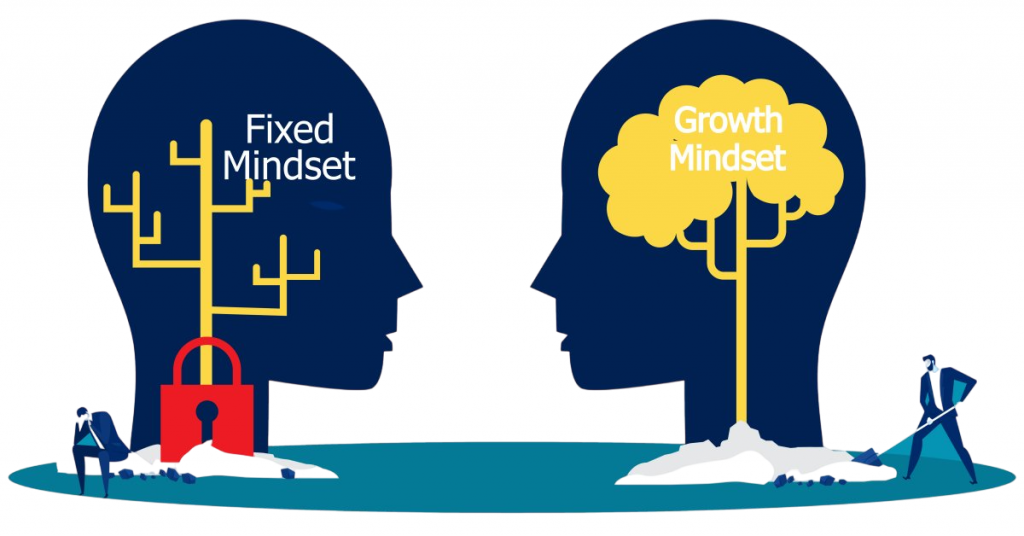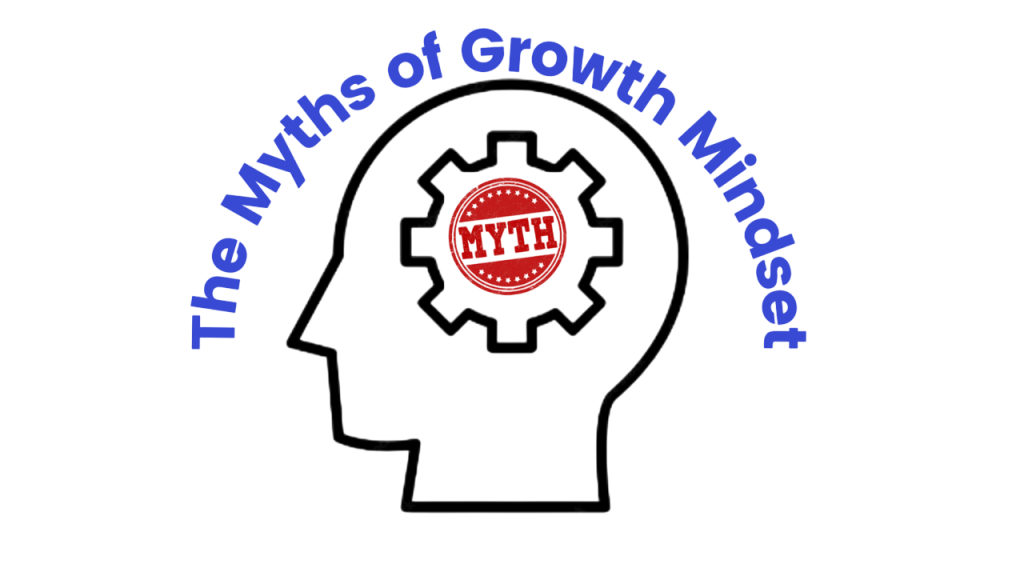
- The Power of Mindset
- Definition of growth mindset
- Fixed vs Growth Mindset
- Importance in Personal Development
- Impact on Education
- Impact on Workplace
- Cultivating a Growth Mindset
- Role of Feedback
- Case Studies
- Myths about Growth Mindset
- Growth Mindset and Leadership
- Conclusion
The Power of Mindset
In recent years, the concept of mindset has gained considerable attention across various fields such as psychology, education, and business. The term “mindset” refers to an individual’s established set of attitudes, beliefs, and assumptions that shape how they interpret and respond to different situations. Among the different types of mindsets, the distinction between a fixed mindset and a growth mindset popularized by psychologist Carol Dweck has become particularly influential, especially in areas like Softskills Training where mindset plays a critical role in personal and professional development. Understanding and adopting a growth mindset has proven to be essential in achieving success in personal development, education, the workplace, and leadership. This essay explores the definition of mindsets, differentiates between fixed and growth mindsets, and examines their significance across multiple domains.
Definition of growth mindset
A mindset is essentially a mental framework that influences how individuals perceive their abilities and potential. Carol Dweck, a Stanford University psychologist, categorized mindset into two main types: fixed and growth. According to Dweck, individuals with a fixed mindset believe that their intelligence, talents, and abilities Leadership Theories are static traits that cannot be significantly developed. Conversely, those with a growth mindset believe that with effort, learning, and persistence, their abilities can improve over time. This fundamental difference affects behavior, motivation, and achievement in various aspects of life.
Fixed vs Growth Mindset
A fixed mindset is characterized by a desire to appear smart, avoid challenges, give up easily, see effort as fruitless, ignore useful feedback, and feel threatened by others’ success. Individuals with this mindset tend to plateau early and achieve less than their full potential. In contrast, a growth mindset thrives on challenges and sees failure as a springboard for growth. People with a growth mindset embrace learning, value effort, persist in the face of setbacks, learn from criticism, and find inspiration in others’ achievements. This mindset leads to a greater sense of self-efficacy and resilience. It is crucial for both professional and personal development to comprehend the difference between fixed versus growth mindsets.

Carol Dweck developed the fixed versus growth mindset theory, which emphasises how our perceptions of our own intelligence and aptitude impact our drive, fortitude, and achievement. Understanding the distinction between fixed versus growth mindsets enables people to accept challenges, grow from criticism, and realise their full potential in a variety of contexts, including leadership, the workplace, and education.
Do You Want to Learn More About Aptitute and reasoning? Get Info From Our Aptitute and reasoning certification Training Today!
Importance in Personal Development
Adopting a growth mindset is pivotal for personal development. It fosters continuous learning, self-improvement, and adaptability traits that are essential for overcoming obstacles and achieving long-term goals. Individuals who believe in their capacity to grow are more likely to take risks, try new strategies, and step outside their comfort zones.
- This mindset not only improves emotional well-being by reducing anxiety and fear of failure but also encourages individuals to set higher aspirations for themselves.
- For example, someone aiming to learn a new language GATE Exam Eligibility Criteria a may initially struggle.
A person with a fixed mindset may become discouraged by early mistakes and give up, believing they lack the “natural talent” for languages. In contrast, someone with a growth mindset would view those mistakes as part of the learning process and persist until they improve.
Impact on Education
The growth mindset has transformative implications for education. Students who believe their intelligence can be developed are more likely to embrace learning, engage with challenging material, and achieve higher academic outcomes.
- Teachers who promote a growth mindset create classroom environments that encourage curiosity, resilience, and a love of learning.
- Several studies have demonstrated that interventions aimed at fostering a growth mindset can significantly improve students’ academic performance, especially among those from disadvantaged backgrounds.
When students understand that their brains can form new connections through practice and learning, they become more motivated to work hard and persevere through difficulties. Educational systems that incorporate growth mindset principles help students become lifelong learners and critical thinkers.
Would You Like to Know More About Aptitute and reasoning? Sign Up For Our Aptitute and reasoning certification Training Now!
Impact on Workplace
In the workplace, mindset plays a critical role in shaping employee performance, job satisfaction, and organizational culture. A growth mindset contributes to innovation, collaboration, and adaptability qualities that are crucial in today’s rapidly changing business environment. Employees with a growth mindset are more likely to seek feedback, learn from mistakes, and take on new challenges. They are also better equipped to handle stress and ambiguity. Organizations that cultivate a growth mindset culture often supported by Softskills Training benefit from increased employee engagement and lower turnover rates. Leaders who model a growth mindset by acknowledging their own mistakes and continuously seeking improvement set a powerful example for their teams. Additionally, companies that reward effort, learning, and improvement rather than just outcomes are more likely to foster a high-performing and agile workforce.
Cultivating a Growth Mindset
Developing a growth mindset requires intentional practice and self-reflection. Here are some strategies for cultivating this mindset:
- Embrace Challenges: View challenges as opportunities to learn and grow rather than threats to self-esteem.
- Persist Through Obstacles: Understand that setbacks are part of the learning process and not indicators of failure.
- Value Effort: Recognize that effort is essential for mastery and improvement.
- Learn from Criticism: See feedback as a tool for growth rather than a personal attack.
- Celebrate Growth: Acknowledge and reward progress and learning, not just outcomes.
Practicing these habits consistently can help individuals shift from a fixed to a growth mindset. Journaling about daily challenges, seeking constructive feedback, and setting learning goals are effective ways to reinforce this transformation.
Role of Feedback
Feedback is a crucial component in fostering a growth mindset. Constructive feedback helps individuals identify areas for improvement and encourages them to develop new strategies. In contrast, vague or overly critical feedback can reinforce a fixed mindset by making individuals feel inadequate. Effective feedback should be specific, focused on behavior rather than personality, and BSc Nursing Growth Path delivered in a way that supports learning.. For instance, instead of saying “You’re not good at presentations,” a more constructive approach would be “Your message was strong, and with a bit more eye contact and vocal variation, it could be even more engaging.” This type of feedback reinforces the idea that abilities can be developed and that improvement is within reach.
Gain Your in Aptitude and reasoning Training by Enrolling in Our Aptitude and reasoning training Now!
Case Studies
Education: A study conducted in low-income schools in the United States showed that students who received growth mindset training improved their grades significantly compared to those who did not. Teachers reported increased student engagement and a greater willingness to tackle difficult assignments.
Corporate: At Microsoft, CEO Satya Nadella emphasized a shift to a growth mindset culture upon assuming leadership. This shift led to increased innovation, collaboration, and employee satisfaction. Microsoft transitioned from a “know-it-all” to a “learn-it-all” culture, resulting in renewed market competitiveness.
Sports: Elite athletes often exhibit growth mindsets, which allow them to rebound from losses and Coding and Decoding continue to refine their skills. Michael Jordan famously spoke about the many shots he missed and games he lost, crediting those experiences as essential to his success.
Myths about Growth Mindset
Despite its popularity, several misconceptions about the growth mindset persist:

- Myth 1: It’s just about effort: While effort is crucial, effective strategies, feedback, and learning from mistakes are equally important.
- Myth 2: You either have it or you don’t: Mindset can change over time with deliberate effort and awareness.
- Myth 3: A growth mindset guarantees success: It increases the likelihood of improvement but does not eliminate the need for hard work and perseverance.
Clarifying these myths is important to ensure that the growth mindset is applied effectively and not oversimplified.
Preparing for Aptitude and reasoning Job? Have a Look at Our Blog on Aptitude and reasoning training To Acte Your Interview!
Growth Mindset and Leadership
Leadership greatly benefits from a growth mindset. Leaders who believe in development both for themselves and their teams create environments that encourage learning, innovation, and trust. Such leaders are more likely to invest in employee development, delegate responsibility, and welcome diverse perspectives. In both personal and professional contexts, growth mindset leadership places a strong emphasis on learning, adaptability, and ongoing development.
- Leaders that have a growth mentality encourage creativity, assist staff advancement, and Forefront of Bridging the Technology establish an environment where obstacles are seen as chances.
- Growth mindset leadership enables teams to realise their full potential and propels long-term organisational success by encouraging feedback, flexibility, and trust.
- Leaders with a growth mindset also handle failures with grace, using them as learning opportunities rather than assigning blame.
This approach cultivates psychological safety, where employees feel comfortable sharing ideas and taking risks. Ultimately, growth-minded leadership fosters a culture of continuous improvement and resilience, which is essential for long-term organizational success.
Conclusion
The concept of a growth mindset has profound implications for individuals and institutions alike. By understanding the difference between a fixed and a growth mindset, and actively working to cultivate the latter, individuals can unlock their full potential. Whether in personal development, education, the workplace, or leadership, embracing a growth mindset leads to greater motivation, improved performance, and long-term success. As Carol Dweck’s research has shown, our beliefs about our abilities shape our reality. “By choosing to believe in growth, we empower ourselves and those around us to achieve more than we ever thought possible an approach that is often reinforced through Softskills Training focused on communication, adaptability, and emotional intelligence. Adaptability and ongoing education are no longer optional in the rapidly evolving world of today; they are necessary. Resilience, inventiveness, and a proactive attitude towards difficulties are all encouraged by a growth mindset. Additionally, it directly relates to skills development and lifelong learning in all sectors. Everyone, from novices to seasoned pros, can gain from changing their perspective. In the end, the idea that we can develop is the first step on the path from learning to leadership.


